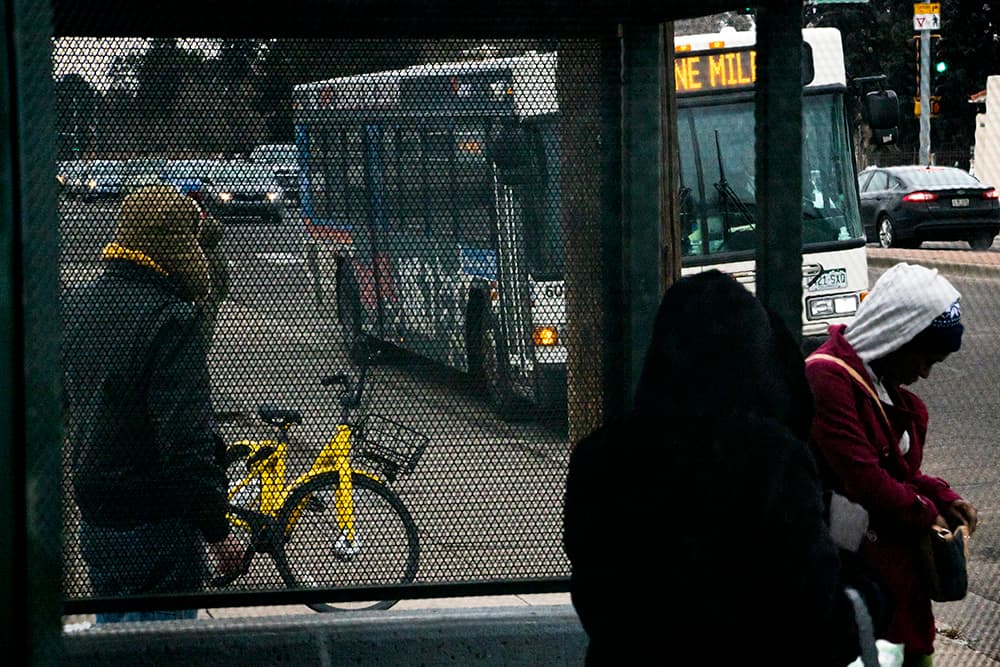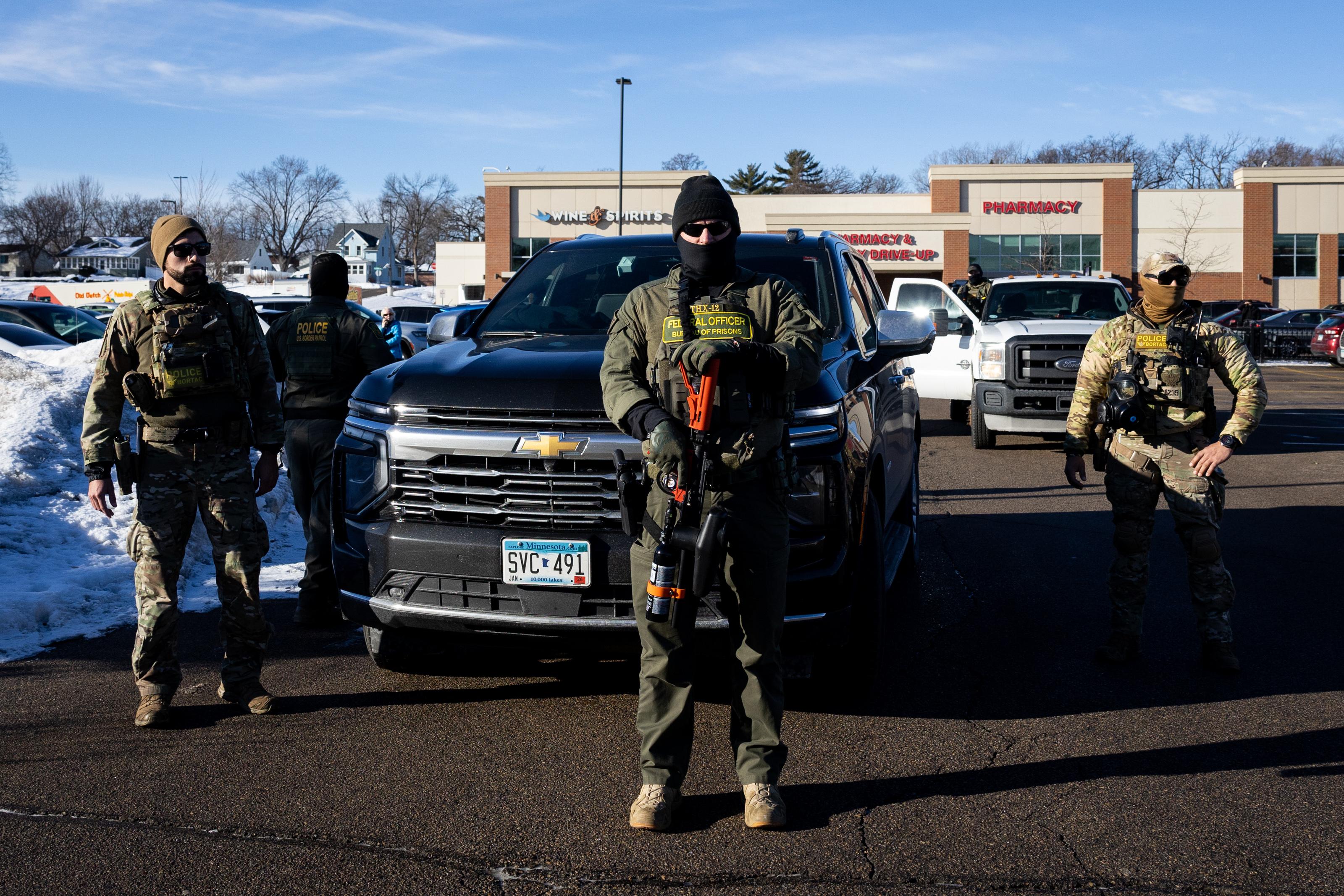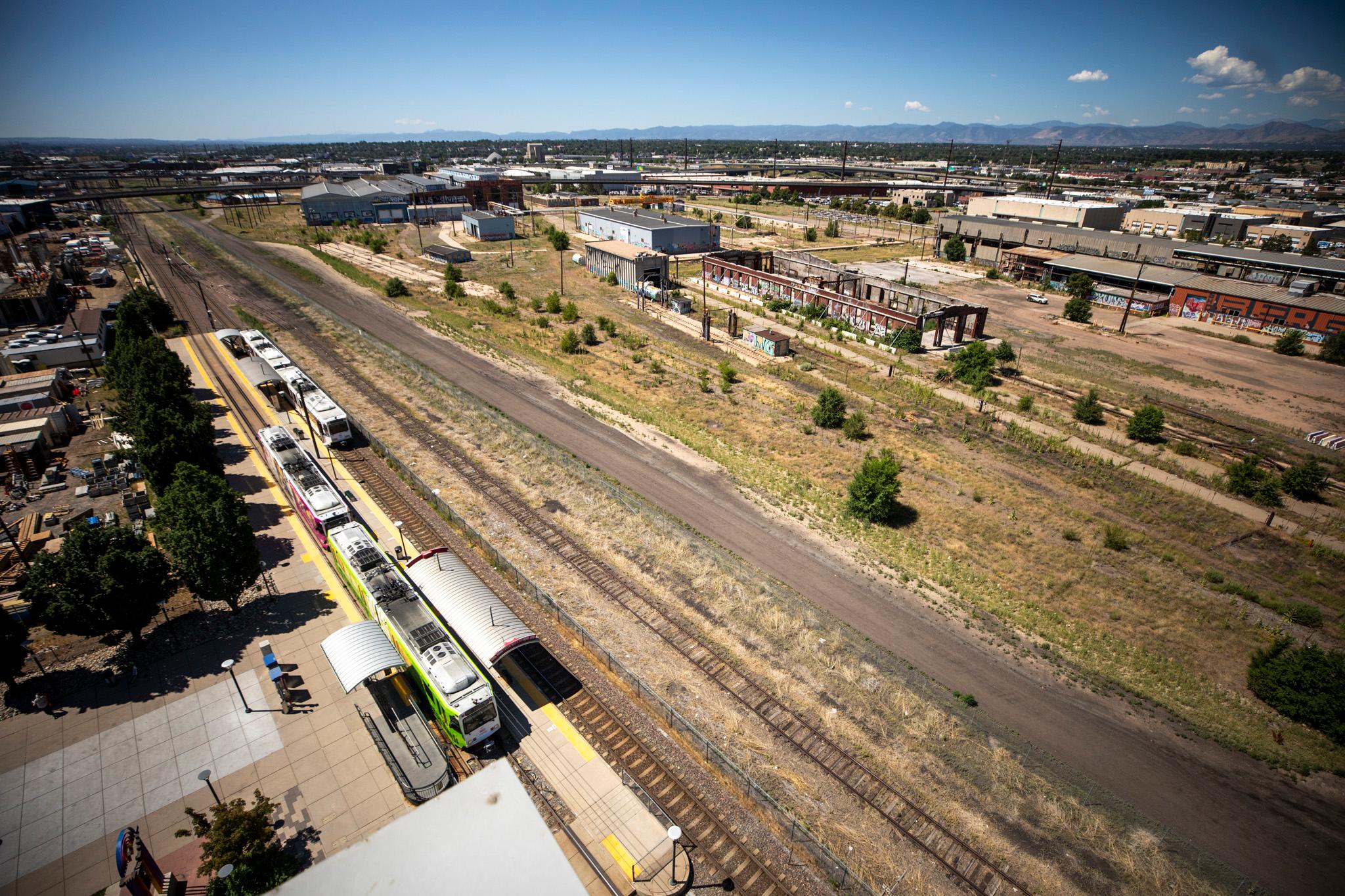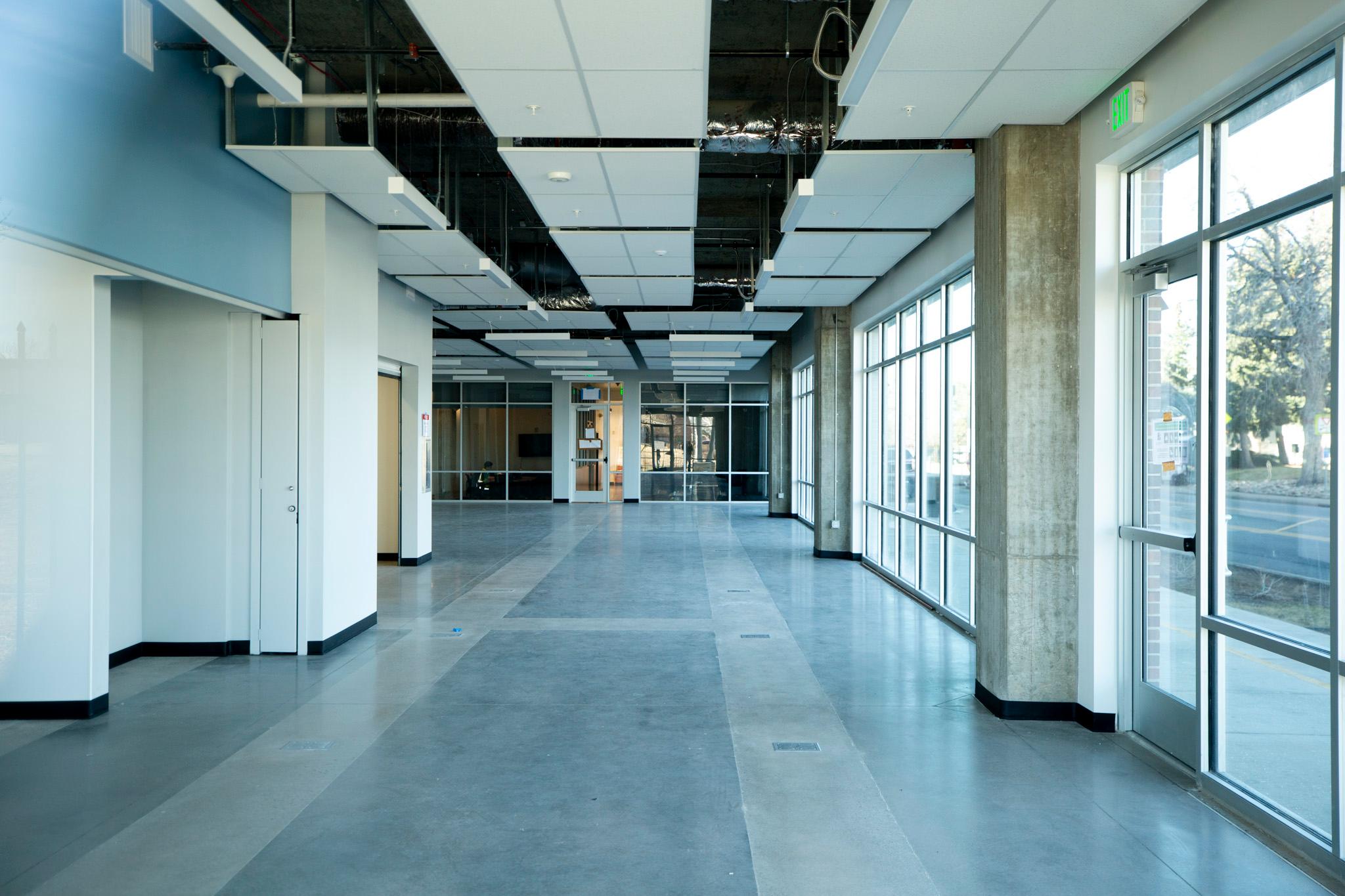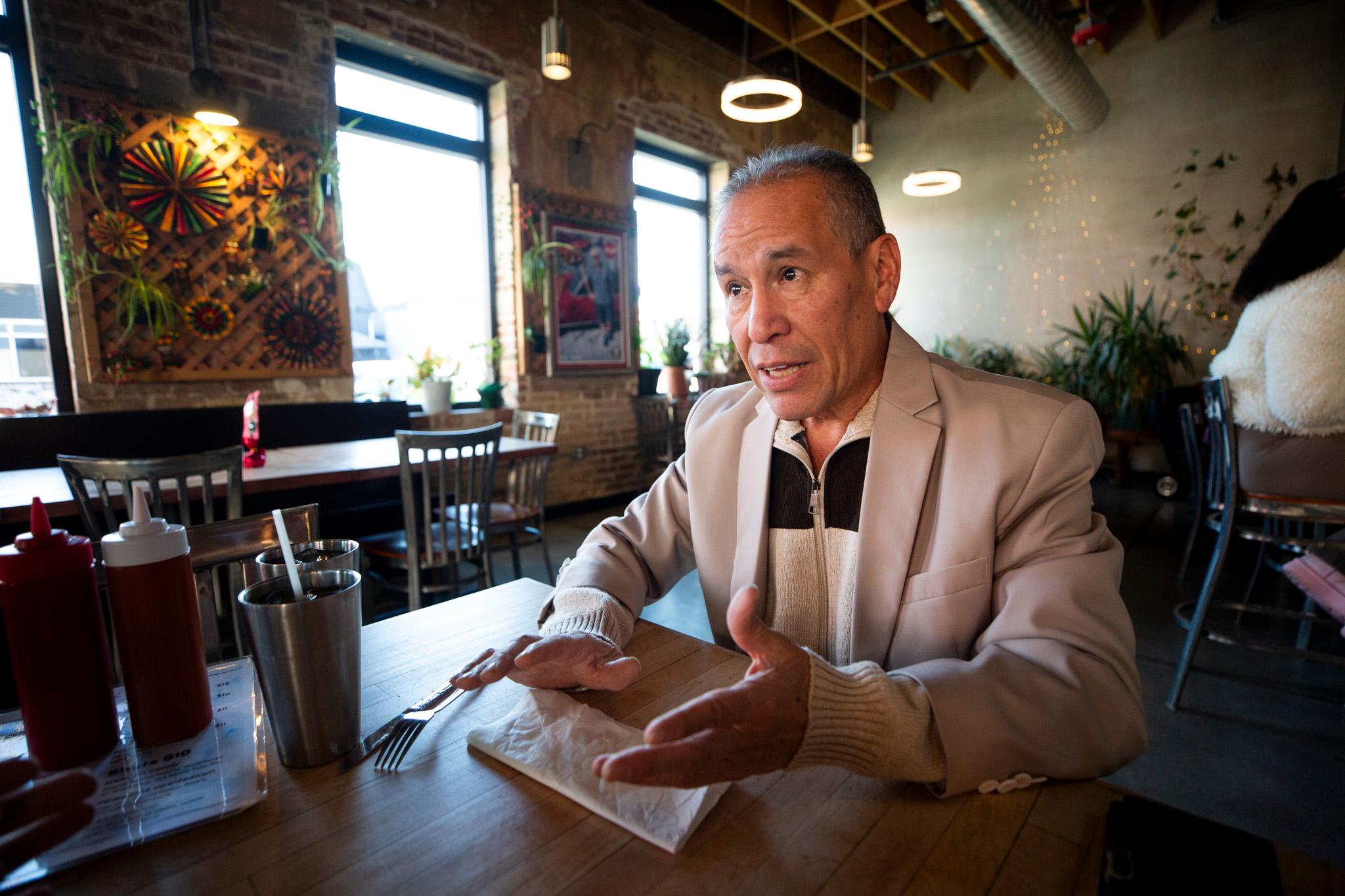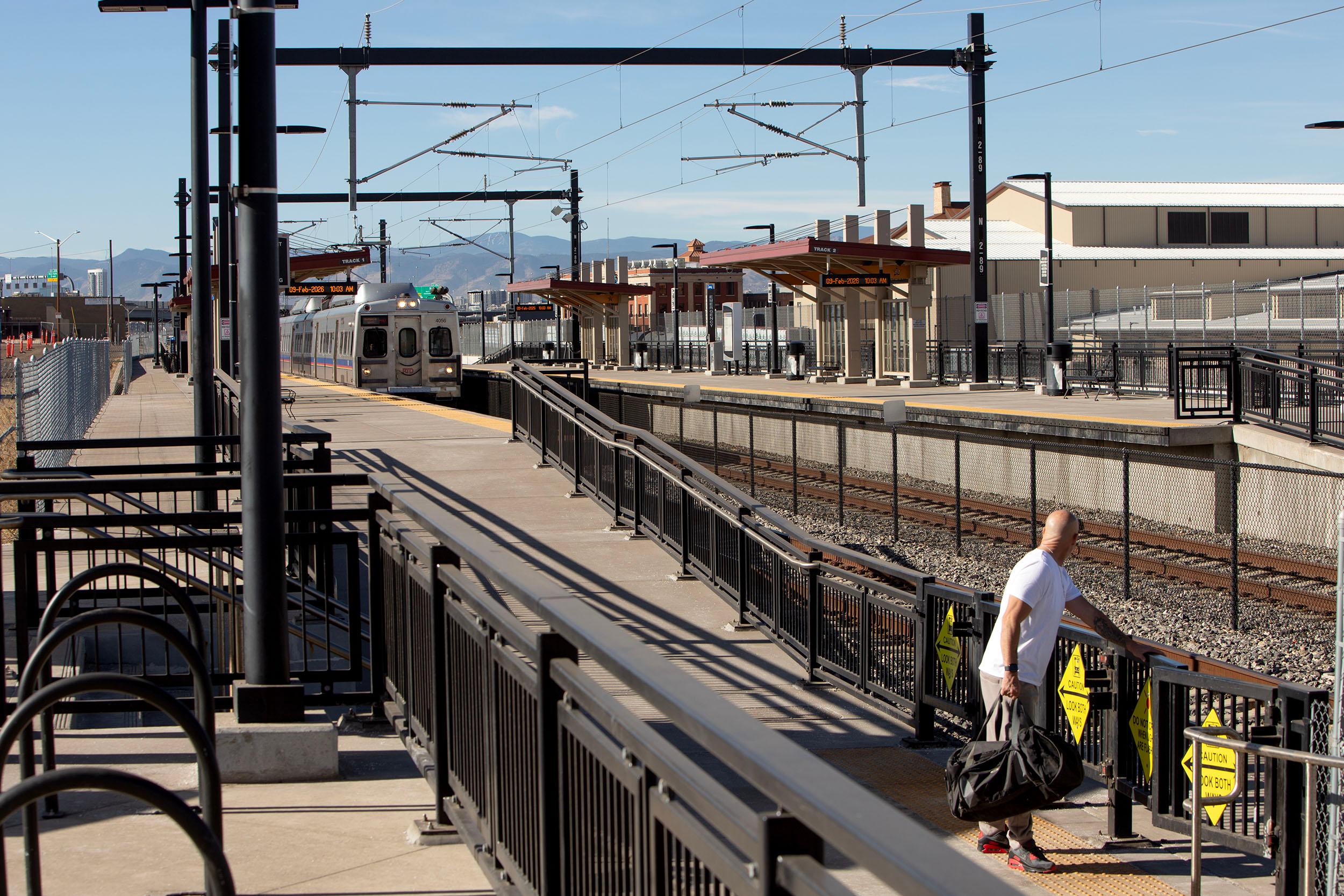Denver is in the midst of a minor culture war over dockless, electric scooters.
It sounds dramatic, but so are the tweets. Some Denverites are thrilled to have the scooters, others are annoyed by them, and still others either want to throw them in the South Platte or rally around them as their right in a free country.
Ultimately, this is a public transportation policy debate, and the city is already working to incorporate dockless rides into its future.
Denver Public Works on Friday notified Lime and Bird that it intends to develop a pilot program for "dockless mobility technology" to operate within the city "in a way that respects our public spaces and meets Denver’s mobility goals, as outlined in the city’s Mobility Action Plan."
Per the city's press release, those goals are:
- Offering people more options to get around town in ways that meet their day-to-day needs
- Decreasing the percentage of people taking single-occupancy vehicle trips
- Increasing the percentage of people who take transit by helping them get to and from transit hubs and solving what is known as the first-mile, last-mile problem
- Increasing access to smart technologies and mobility services for everyone, including low-income residents and underserved neighborhoods
The pilot will be developed through the existing Transit Amenities Program, which allows for amenities at bus and rail stops. And as we already know, there are a handful of challenges ahead.
How do you solve a problem like dockless, electric scooters?
Dockless, two-wheeled transportation has an obvious goal and benefit: reducing our reliance on cars and making cities more accessible with cheap and convenient bicycles and scooters than can act as a primary mode of transportation or fill in the gaps of bus and rail service.
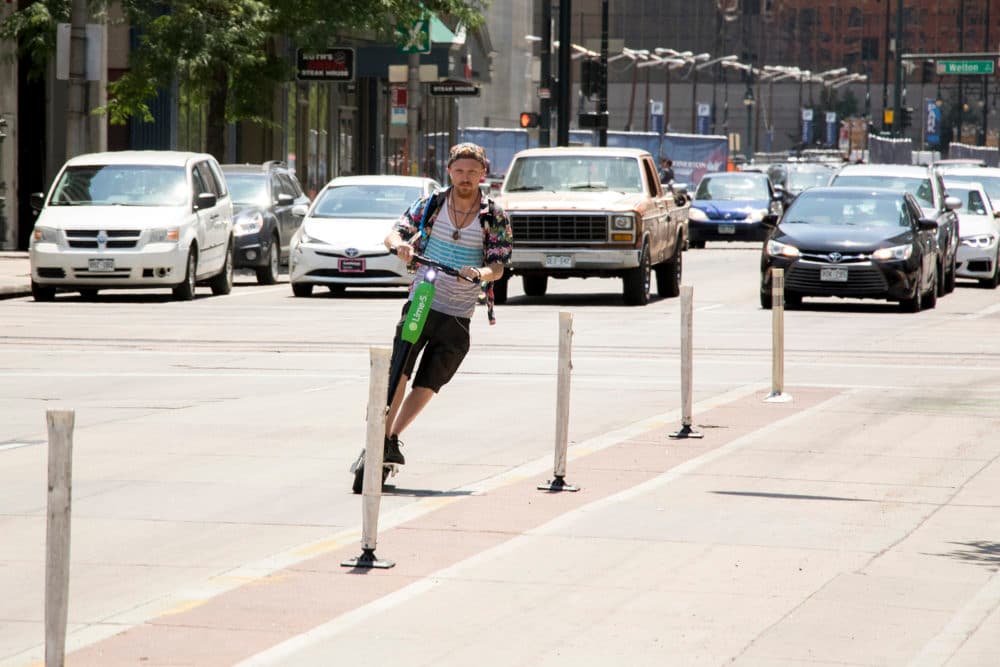
But, of course, that's easier said than done. The problems are also obvious. For one thing, Denver doesn't have regulations in place electric scooters. They can only be on sidewalks right now, and that's a pretty unsafe place to ride a scooter at 15 miles per hour. Then there's the "this is why we can't have nice things" category of problems, which includes irresponsible and unsafe riding and parking behavior.
As of Friday afternoon — one month after Lime all but surprised the city by deploying its scooters and three weeks after the city ordered Lime and Bird to remove their scooters from the public right of way — Denver Public Works had confiscated more than 300 scooters and written 264 tickets, public works spokesperson Nancy Kuhn said in an email. The companies have 10 days to pay the fine and Public Works does not currently have a count on what's been paid.
It's unclear what exactly the next steps are for either company. Contacted on Friday, a representative for Lime responded with this statement: "We have been in touch with the city of Denver as they work on guidelines around the operations of shared dock-free scooters." She did not respond to a request for the number of scooters still out in Denver or the number confiscated. The company has released two videos on how to park responsibly and ride safely. A representative for Bird was unable to provide someone to comment.
Dockless bikes don't face the same legal problems, but they face the same people problems.
It's already clear, legally and in most riders' minds, where we can and can't ride bikes. Denverites have been riding their own bikes forever and riding B-cycle without drama for years. It's the dockless bikes that provoke ire — though that's mostly an Aurora problem right now. Dockless bike company Ofo operates throughout Denver's neighbor to the east and in a little island of service here at the University of Denver.
An Ofo pilot program for students and faculty launched at the school this spring, and DU monitoring how Ofo affects campus transportation as Denver Public Works and Ofo keep track of the number of rides per bike per day. Since May 8, people have taken more than 30,000 rides on Ofo's 200 DU bikes, said Ofo Rocky Mountain general manager Patrick Quintana. That's an average of five rides per bike per day.
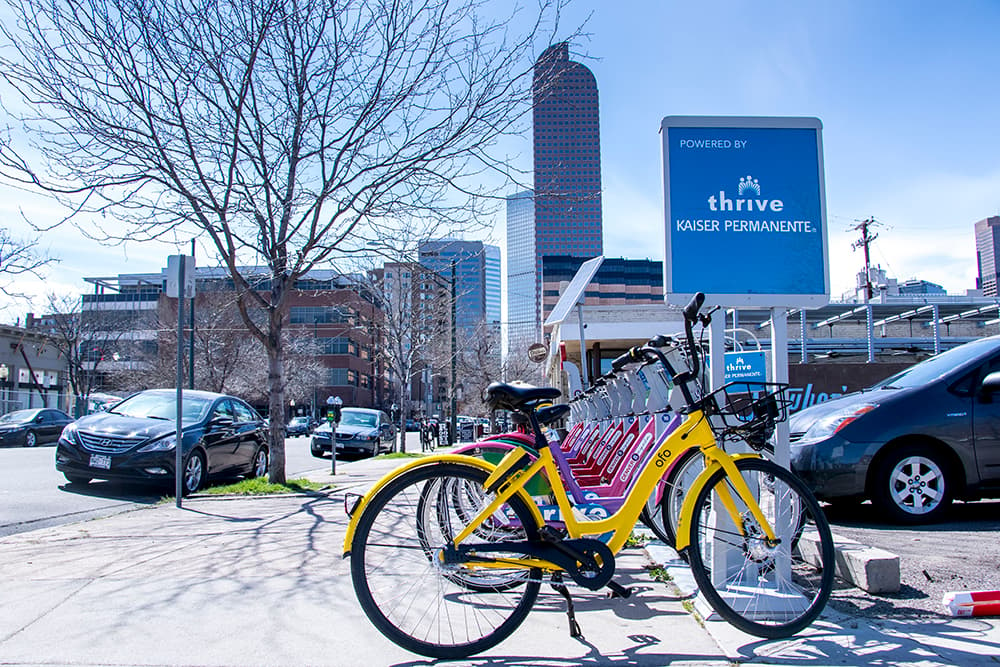
The bikes work just like the scooters. GPS helps you find bikes through the app and they're unlocked by scanning or typing in a code. It costs $1 an hour, and when you're done, you turn a dial on the bike to lock it and end the ride in the app. Their implementation has gone pretty smoothly, largely because it was done through close work with the city.
"We have not had a problem with Ofo bikes," Kuhn said in an email, "but we have communicated the same information to Ofo as the other companies, that we will remove bikes left unattended in the public right of way (and outside of Ofo’s operating boundaries) as resources allow."
As Quintana pointed out, Ofo is responsible for retrieving bikes that have been sitting unused somewhere for a while or that have strayed out of bounds. Operational challenges are different in every market — Seattle is different from Denver, which is different from Aurora. The company can learn in each of them, and pilot programs like the one at DU establish a working relationship with the city.
So for now, Ofo is pretty restricted in its Denver reach, but District 4 Councilwoman Kendra Black said she's seen them around. Her far-southwest Denver district is pretty suburban in design, so it poses its own problems when it comes to the need for services like Ofo, Lime and Bird versus the ease of implementing them.
"There aren’t a lot of bikes or scooters in my district," Black said. "However, I can make the case than we could probably use them more than a lot of districts because we have five light rail stations and we really have to drive to all of them. These dockless bikes and scooters would probably be good solutions for our first-mile/last-mile problem."
But, she said, her own neighborhood doesn't have sidewalks. There's no good place to leave a dockless bike you've taken from a light rail station. One solution she's heard is to take what would normally be a parking space, paint it off and turn it into a designated bike corral.
"Every market is different. It’s important to realize in some of those areas … it’s helpful to educate the community on how to use the bikes — how to use them, how to implement them," Quintana said. "In southeast Denver, it is very much like Aurora … the answer right now is park it responsibly and out of the right of way. If you want to park it in your driveway, that’s great."
Also worth noting: Ofo has decided not to roll out scooters in Denver for now.
"But what about cars?" you ask.
Cars are frequently blocking bike paths and (in your reporter's experience) swerving into bike lanes without looking. So in the wake of the scooter uproar, many Denverites are asking why the city doesn't go after car owners the way it's going after scooter companies.
The simple answer there is that there are already a ton of laws in place to deal with that sort of thing, largely involving ticketing and towing, and similar to the bike confiscation efforts, the city does what "resources allow."
The other answer is that drivers, like dockless two-wheelers, could afford to be more conscientious.
It's about the first mile, the last mile and the whole trip.
Ofo sees both kinds of uses, and how its bikes are used tends to depend on where they're being used.
"When you think of DU or the more dense Denver areas, you’re going to see people use this for their primary commute and it’ll replace single occupancy vehicles," Quintana said. "When you look at some of the areas that are a little more suburban, it replaces that first/last-mile challenge."
RTD was not able to return a request for comment before this story was published.
Steven Erickson is the director of communications and marketing for Denver Regional Council of Governments (DRCOG), which runs Way to Go, the Bike to Work Day organizer that year-round "provides reliable, easy, environmentally-friendly, no-nonsense commuting options to Denver area commuters." In an email, he said Way to Go sees "a great deal of potential for these emerging mobility solutions, particularly for first and last mile trips, and there’s clearly demand for both dockless bikes and scooters," though there are concerns about deployment without careful planning.
"I think the challenges have been evident in recent weeks," he wrote. "While shared dockless services certainly offer a great deal of potential, their success depends on finding a better way to manage their fleet, and providers should be working closely with cities and towns to carefully plan and implement a solution that works for all concerned. The ideal situation may be something like the DU pilot, where all entities involved worked together to find a solution that at least in the early stages seems to be working well."
Black, who said she would "love to have access to a scooter or dockless bike" near her home, emphasized the same need for careful planning and coordination with the city, as well as the technology's potential to improve Denverite's lifestyles.
"I think it’s exciting," she said. "New technologies can change things in a positive way. And hopefully this will be accessible to people of all demographics."

